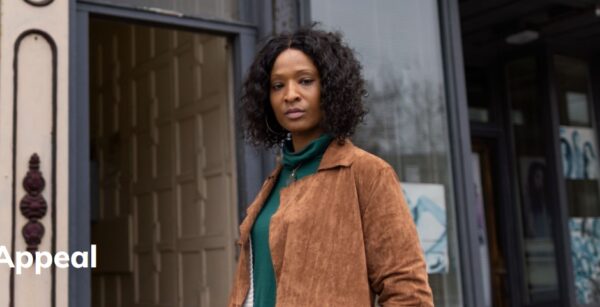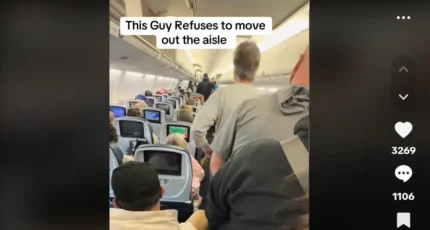Despite finding no drugs or signs of criminal activity, a local police squad seized and kept thousands of dollars found in a Black woman’s Rochester, New York, home. After a year and a half, the money has not been returned to the entrepreneur, and she has aligned with a pro bono legal team to assist in her fight for her property.

In October 2020, members of the Rochester Police Department raided Cristal Starling and her then-boyfriend’s West Main Street apartment. Law enforcement suspected the man of selling drugs, based on contraband found at another home, the D&C reports.
After combing through the residence, officers were unable to find any narcotics but did find $8,040 (seizing the funds as evidence), two cars, and arrested the boyfriend, believing he was a drug dealer.
The money was not proved to be connected to any drug sales, and Starling says it belonged to her and was savings to expand her mobile food cart business by acquiring a truck.
Starling was never accused of wrongdoing, even after the boyfriend was acquitted and the two cars were returned, but not her money.
In an attempt to get the money returned after the acquittal, she ran into several obstacles before connecting with the nonprofit Institute for Justice, an libertarian organization that specializes in fighting such civil forfeiture cases.
“After trial, I tried to get my money back,” Starling said. “They sent me through this whole process of trying to get it through the courts and I still did not get it.”
Federal prosecutors maintain they gave her “direct notice” about the procedure for getting her money back and she didn’t follow the rules.
Authorities said the cash was not returned because she missed multiple administrative deadlines to file claims for the seized money. Court documents reveal her first claim was entered three months after money went into default and handed over to the government.
The funds, according to typical protocol, were divided between other law enforcement departments in the area.
In the paperwork submitted by Starling, she shows she was on vacation when the “direct notice” was sent to her.
The woman then took her case to a federal court, where a judge sided with the prosecutors.
In a statement on their website, the Institute alleges, “The government never even tried to show that Cristal had done anything wrong, but it was able to take her money by tying her up in complicated legal procedures.”
Her new representation says this is not an isolated situation.
Many who have experienced forfeiture of money, particularly low amounts, get frustrated with the process and give up. Some don’t see the benefit in acquiring a lawyer that they will have to pay to retrieve the money.
But Starling did not give up.
Rob Johnson, an attorney for the Institute, said, “This is sort of the typical case. Cristal got farther in the fight than virtually anyone, which is why I was able to find her.”
“The average value of forfeiture cases is small, meaning it doesn’t make sense for most people to hire a lawyer even if they could afford one, and most civil forfeiture cases end with a missed deadline rather than a decision on the merits,” the organization argues. “Property owners are forced to run a procedural gauntlet, and they lose by default if they make just a single mistake.”
The Institute has been studying forfeiture data in 21 states and says it have seen cases where federal prosecutors sometimes will offer a return of up to half of the money back to the individuals they took it from. Starling said, despite her own case’s default ruling, the government even offered her a partial bit of her money, but she did not take it.
She said, “My question to them was if I had already lost all rights to the full amount of currency and it’s already in default, why would you be offering half of it back?”
With the support of The Institute, she will now appeal the judge’s decision. The fight won’t be easy.
One lawyer from the nonprofit says, “the system is extremely complex and confusing” and “really hard to navigate even for lawyers.”
“[Lawyers] get tripped up by the procedures and they miss a deadline in these super strict rules,” the attorney confessed. “Oftentimes the merits of these cases are never heard.”
For Starling, it should never be this complicated, she believes since she didn’t do anything nor was she charged with anything, she believes the money should be hers.
The new strategy is to appeal the district court’s decision to the United States Court of Appeals for the Second Circuit.
Editor’s note: An earlier version of this story mistakenly reported that Westchester County police raided Starling’s home. Atlanta Black Star has corrected this and regrets the error.


